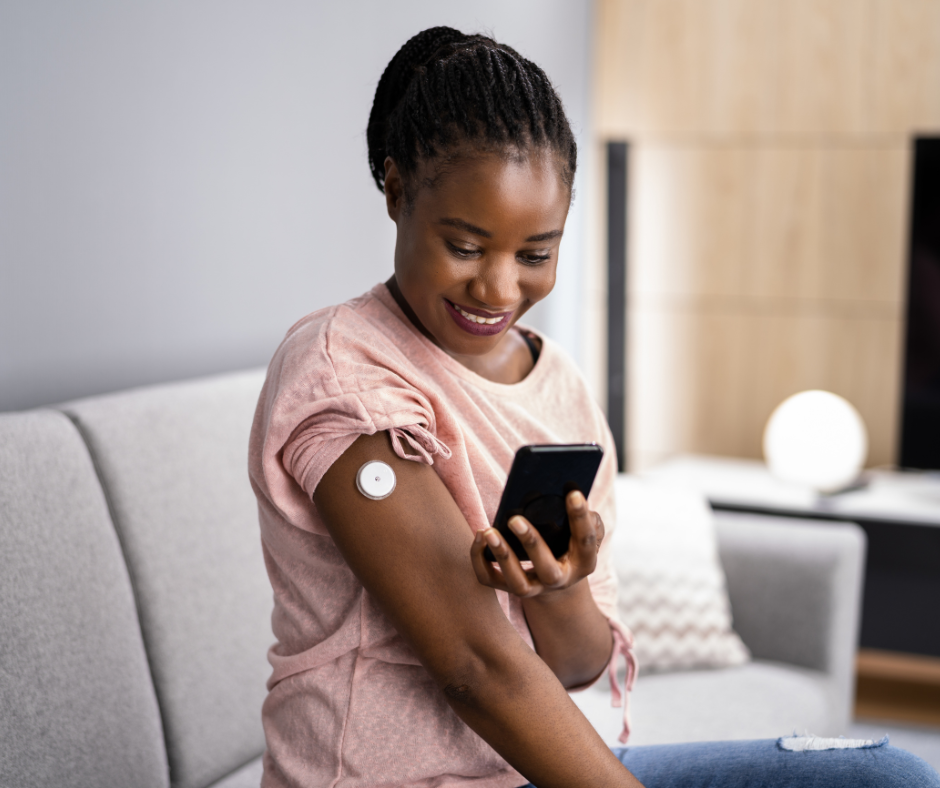5 Things to Know about CGMs

Having diabetes means keeping a constant eye on your blood sugar levels. One way to do this is by using a device called a CGM, or Continuous Glucose Monitor.
Here are five things to know about CGMs and how they help manage diabetes.
- How CGM Works
A CGM is a small device, often worn on the back of the upper arm or belly that provides continuous blood glucose data to a phone or hand held device. It allows a person to see if their blood glucose (sugar levels) is rising or falling and tracks trends over time.
- Understanding Blood Glucose Trends
A CGM can help you make smart choices about managing your diabetes. By watching these trends over days or weeks, you can change your medication, food, or things you do to keep your sugar in control
- Setting Alarms
You can set up your CGM to tell you when your blood sugar gets too high or too low. This helps you notice when things are changing fast. For example, if your sugar is dropping quickly, an alarm can tell you to eat a healthful snack to stop it from getting too low.
- When To Test with a Fingerstick Reading
Sometimes, you need to make sure your CGM is giving the right numbers. If your symptoms do not match the CGM reading, you will want to do a fingerstick test. A fingerstick test is also a good idea if you just started a new sensor, or are having any issues with your device.
- Also Rely on Your Care Team
Remember, even though a CGM is helpful, it’s important to to work with your health care provider to better understand your readings. Your care team can help you set up your device, read your CGM data, trouble shoot device issues, and create a plan to manage your blood sugar levels better.
Author: Rebecca Day, RN, CDCES. | CCS Health
This site is for educational purposes only. Talk to your doctor or healthcare provider before making any decisions about your health.



